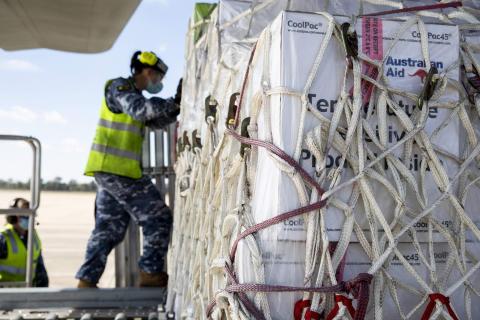In the wake of the Abbott Government's unforeseen but momentous decision last year to integrate the Australia's foreign aid agency, AusAID, into DFAT, the federal parliamentary committee system seems to have been enlisted by government and opposition to debate the aid policy gap.
In early December, the Senate's Foreign Affairs, Defence and Trade References Committee started an inquiry into Australia's aid program with particular reference to the aid program's ability to deliver against stated policy objectives and international commitments, Australia's ability to maintain its development priorities, as well as the impact of the integration of AusAID into DFAT and the freeze on the aid budget.

Meanwhile, before the deadline for submissions to the opposition-dominated Senate references committee had even arrived, Foreign Minister Julie Bishop asked the Joint Standing Committee on Foreign Affairs, Defence and Trade (JSCFADT), in which the Government has a majority, to enquire into and report on the role of the private sector in promoting economic growth and reducing poverty in the Indo-Pacific region. The closing date for submissions is 8 May.
Then on 28 February, the minister asked the JSCFADT's newly-formed sub-committee on foreign affairs and aid to undertake another enquiry, this time into human rights issues confronting women and girls in the Indo-Pacific region. The closing date for submissions to that enquiry is 22 May.
While it's a well-regarded and standard task of parliamentary committees to undertake enquiries into such policy and programmatic issues, this quick and close spate of enquiries into foreign aid is highly unusual. [fold]
Whatever the political agenda behind this rush to use the parliamentary committee system, if there had been some expectation that the committees could either pressure the Government into formulating a clear aid policy or quieten criticism about the lack of such policy, the findings of the Senate enquiry released last week shows that neither aim has yet been met.
The committee delivered not one report but three.
There was the main report, which provided 24 recommendations including, notably, that the Australian Government release an overarching policy framework for Australia's aid program as part of the May 2014 budget process, and that the Australian Government undertake a white paper process to refine the long term strategic objectives of Australia's aid program and identify measures to achieve these objectives. That report was signed by the chair of the committee, Labor Senator Ursula Stephens.
A second but dissenting report, signed off by the Liberal Deputy chair, Senator Alan Eggleston, and fellow Liberal senator David Fawcett, has only three recommendations: that the coalition government deliver aid against its stated policy objectives; that it implement rigorous performance benchmarks; and that it strengthen the aid program's fraud management controls and systems.
The other dissenting report was signed off by Australian Greens' Senator Lee Rhiannon, and has a particular focus on protecting the size of the aid budget as well as strengthening its focus on poverty reduction. It also strongly supports the committee recommendation for an overarching policy framework and the need for long term objectives and identifiable measures to achieve them.
Despite the messiness that dissenting reports present, the enquiry has served to highlight the lack of clarity surrounding Australia's aid program. With the integration process and management of the aid program still in the throes of major change, the efficient use of the program's decreasing human and financial resources absolutely requires a full and clear articulation of the aid policy framework.
It was probably not necessary to use the parliamentary committee system to come to that conclusion. But now that it has, the Government should follow through.
Photo by Flickr user Dai Rui.
